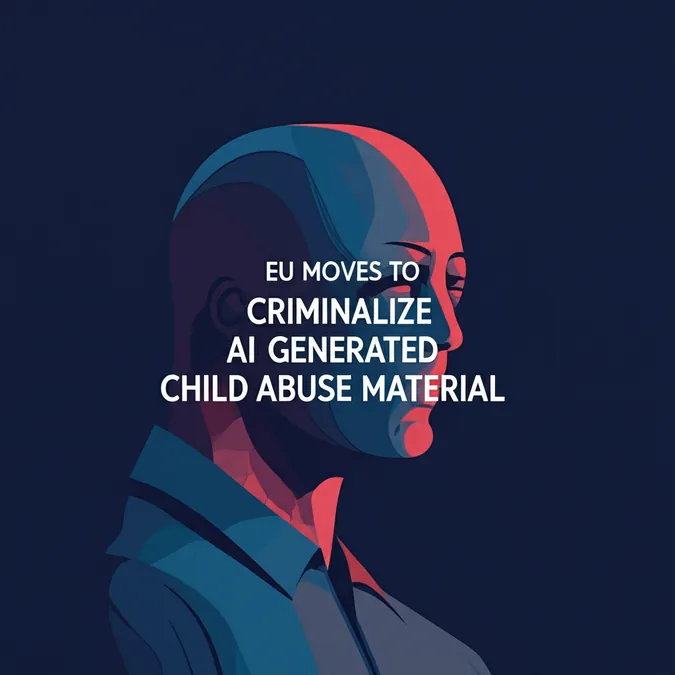Developer Offer
Try ImaginePro API with 50 Free Credits
Build and ship AI-powered visuals with Midjourney, Flux, and more — free credits refresh every month.
AI Generated Music Fraud Plagues Streaming Platforms
Three time Grammy nominated musician Paul Bender is facing a frustrating battle. As the bassist for the acclaimed Melbourne Naarm group Hiatus Kaiyote, a band sampled by music royalty like Drake, Beyoncé, and Kendrick Lamar and admired by Doja Cat and the legendary Prince, Bender's frustration stems from his solo project, The Sweet Enoughs.
Launched during the 2020 lockdown, The Sweet Enoughs unexpectedly garnered over 26 million Spotify streams with minimal promotion. However, in March, a new track appeared on the project's Spotify page, alerting fans and even celebrities like Tyler, The Creator and Questlove. Something was amiss: the generic artwork and poor production quality were starkly different from The Sweet Enoughs' established exotica inspired sound. Crucially, Bender had not authorized or uploaded any new music.
"It was some of the most insanely clunky, amateurish, bizarre pieces of audio I've ever experienced," Bender stated.
"What is this? Who made this? And why is it on my page? It was perplexing to say the least."
Soon after, more unauthorized tracks appeared: a distorted mumble rap song, another resembling "Crazy Frog era Eurotrash", and then a fourth unwanted track. Bender suspected these were AI generated, aimed at hijacking his profile to accumulate fraudulent streams.
Unlike platforms like Instagram or YouTube where artists manage their accounts directly, Digital Service Providers (DSPs) such as Spotify require musicians to use digital distributors (e.g., TuneCore, CD Baby, DistroKid) to upload music. These distributors handle licensing, royalties, and metadata. The glaring issue, Bender discovered, is a significant lack of security.
"I assumed you'd need some sort of authentication to upload music. But you just don't."
Bender found a livestream by YouTuber TankTheTech demonstrating how easily an AI generated song could be uploaded to an artist's profile in about 10 minutes, with no hacking or authentication needed. "That just blew my mind," Bender remarked, highlighting the absence of standard online security protocols. He described the system as honor based, wholly inappropriate for the often exploitative music industry.
A Widespread Deception Affecting Artists Globally
This problem isn't confined to Spotify; the fake Sweet Enoughs tracks also surfaced on Apple Music, Tidal, YouTube Music, and Deezer. Bender is not alone. Australian acts like Pond, Northlane, and Polaris have also experienced similar issues. Social media and message boards are rife with user complaints about AI generated music appearing on legitimate artist pages. Fake profiles have even been associated with deceased artists, including Madvillian, SOPHIE, and even Brian Wilson.
A screenshot of music labelled as Brian Wilson. Taken June 12, 2025. (Double J)
Bender and his label, Wondercore Island, have been vocal on social media about the issue, attracting comments from many artists facing the same problem. This includes instances like an AI generated album mimicking Norwegian singer Annie, reminiscent of the 2023 case where Universal Music Group had a song with AI faked Drake and The Weeknd vocals removed.
"It is so grim, so dystopian, and so Black Mirror that it's beyond the pale," Bender expressed. This situation adds another burden for musicians already grappling with touring costs, low streaming royalties, and the intense competition for attention. Bender believes simple two factor authentication could eliminate "99 per cent of this problem immediately."
Anthony Fantano, a prominent music critic, commented on the situation, saying, "everybody's just shrugging their shoulders and passing the buck."
When Wondercore label head Si Jay Gould alerted Spotify about the fake Sweet Enoughs tracks, it took six weeks for a response. Spotify attributed it to a "mapping issue when artists have the same name," a claim Gould finds dubious given the repeated nature of the incidents. Spotify Australia stated that mapping issues "are not common."
Screenshot of Spotify artist profiles that show up when searching "The Sweet Enoughs". Taken June 2, 2025. (Double J)
Instead of removing the fraudulent tracks, Spotify created separate accounts for each, resulting in five profiles for The Sweet Enoughs. Spotify Australia considered the issue "resolved several weeks ago" and pointed to their Spotify For Artists resources. Bender found this response "generic" and "laughable."
"The people we have been dealing with are not serious people. These are bullshit baby responses. It's a f***ing joke."
He argues Spotify failed to address the core problem: an exploitable loophole worsened by AI tools.
The Scam Solution and Platform Responses
Streaming fraud, often involving bots or click farms, costs the music industry an estimated $US2 billion annually, according to Beatdapp. AI music generation tools like Suno, Udio, and Mubert, which generated 100 million tracks in 2023, have made these scams cheaper and easier.
Deezer reported that 18% of its daily uploads (20,000 tracks) are fully AI generated. Deezer uses AI detection tools to combat this, while Apple Music claims less than 1% of its streams are fraudulent. Spotify states it invests heavily in detecting and removing artificial streaming activity.
However, Spotify also embraces AI, with features like an AI powered DJ and an upcoming AI playlist generator. CEO Daniel Ek questioned the future of creativity with AI, seeing it as a democratizing force. "Now, any one of us can probably create a beat in five or 10 minutes," Ek said at a recent Spotify event.
Bryan Johnson, Spotify's Head of Artist & Industry Partnerships, acknowledged the frustration of streaming fraud but claimed AI generated tracks have "infinitely small consumption" and are removed from royalty calculations. Spotify Australia also asserted the offending Sweet Enoughs tracks were "not AI despite the consistent narrative here."
Bender calls this disingenuous. "Obviously, if I was a scammer, I'm not going into a studio... I'm going to go on Suno or Udio and generate 500 songs, almost instantly."
Paul Bender (left) with his band-mates from Hiatus Kaiyote. (Supplied: Claudia Sangiorgi Dalimore)
Gould suspects The Sweet Enoughs were collateral damage in a mass upload scheme. He traced some fake tracks to distributor Ditto Music (not on Spotify's list of "preferred" distributors) but received no response. His investigation revealed stock images used for artwork across multiple fake tracks, including one on Spotify attributed to MC Rhymes, an artist with 1 million Instagram followers but only 826 monthly Spotify listeners.
Bender believes the scam's viability relies on its scalability due to the lack of security. "This isn't a complex problem to solve... Every streaming company is filled with developers who could figure out how to solve this in a lunch break. But have they?"
"It's just really the cherry on top. It really demonstrates the complete lack of regard for artists more than almost anything else."
Artists Are Fighting Back
The Sweet Enoughs' situation has gained support from Michael League of Snarky Puppy, who brought it to the attention of Grammys executives. The plan is to escalate the issue to the Recording Academy CEO and potentially the US Congress.
"I would say the entire streaming industry is operating on criminal levels of negligence," Bender asserts.
An open letter demanding accountability and functional authentication systems from DSPs and distributors has been signed by over 70 artists, including Anderson .Paak, Willow Smith, Rapsody, Kimbra, and Australian acts like Genesis Owusu and The Teskey Brothers. The letter warns that without such measures, "the future of the streaming landscape is one populated with an endless sea of AI impersonations."
This is part of a larger movement. Last year, artists like Billie Eilish and Stevie Wonder demanded protection against unlicensed AI training. Australian artists also supported an APRA AMCOS report highlighting AI's potential devastating impact, terming it a "Napster-level disruption."
Whats Being Done Locally
Following the APRA AMCOS report, the Australian government proposed draft AI regulations including mandatory transparency guardrails. Nicholas Picard of APRA AMCOS calls AI "one of the biggest threats facing songwriters and composers today," noting artists are now competing with AI slop on streaming platforms.
"We would hope, through both the legal and regulatory approach, a sensible government will be able to get to a place where this AI slop that might be uploaded on the platforms can be limited."
Nicholas Picard from APRA AMCOS. (Supplied: APRA AMCOS)
ARIA also acknowledged the "growing threat of AI-generated fraud." The Music Fights Fraud Alliance, established in 2023, aims to unite industry players to combat streaming fraud, though Gould questions its tangible progress.
Bender, currently working on a new Sweet Enoughs record, feels the recent events have soured the creative process. "There needs to be regulations in place... to be at least some dignity afforded by protecting the identities and the intellectual property... of all these artists. That you can guarantee that, 'Yes, this is their music.' Not some robot pretending to be them."
Compare Plans & Pricing
Find the plan that matches your workload and unlock full access to ImaginePro.
| Plan | Price | Highlights |
|---|---|---|
| Standard | $8 / month |
|
| Premium | $20 / month |
|
Need custom terms? Talk to us to tailor credits, rate limits, or deployment options.
View All Pricing Details

